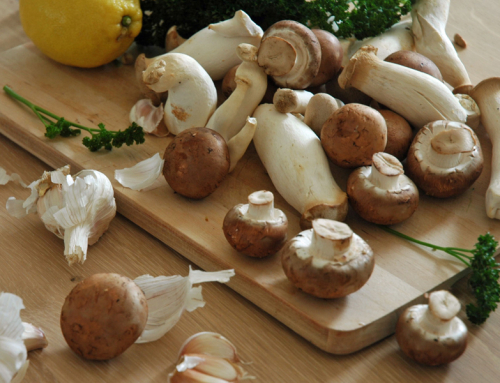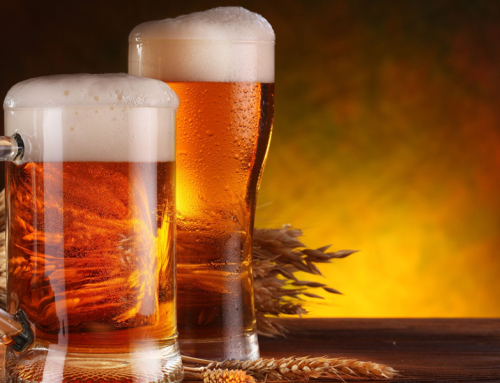Here are some “rule of thumb” guidelines:
- If you add 1 tsp of sugar, add 16 calories per teaspoon
- If you add cream, add 104 calories
- If you add coffee creamer, look on the nutrition label of the package
- If you add a shot of alcohol, you could be adding 20-60 more calories per ounce but since caloric content varies with the type of alcohol, you will need to look up the details of your preferred spirits.
The calories in coffee may vary depending on the ingredients and the brands of the additives used. The following list shows general calories, along with some comparisons from some of the more popular restaurant coffees. If you require a more exact count, check the nutrition label on the additive’s package, or on the company’s website.
Generic Coffees
- Espresso Coffee (1 oz) = 1 calorie
- Brewed Decaf Coffee (8 oz) = 0 calories
- Brewed Coffee (8 oz) = 2 calories
- Instant coffee (8 oz) = 4 calories
- Brewed Coffee with 2 tbsp of skim milk (9 oz) = 12 calories
- Brewed Coffee with 2 tbsp of 2% milk (9 oz) = 17 calories
- Brewed Coffee with 2 tbsp of whole milk (9 oz) = 20 calories
- Brewed Coffee with 2 tbsp of half & half (9 oz) = 42 calories
- Brewed Coffee with 2 tbsp of cream (9 oz) = 106 calories
- Brewed Coffee with 2 tbsp of plain liquid non-dairy creamer (9 oz) = 42 calories
- Brewed Coffee with 2 tbsp of plain powdered non-dairy creamer (9 oz) = 68 calories
- Homemade Latte with 6 oz whole milk (8 oz) = 91 calories
Starbuck’s Coffee
- Brewed Coffee (16 oz) = 5 calories
- Caffè Americano (16 oz) = 15 calories
- Cappuccino (16 oz) = 140 calories
- Caffè Latte (16 oz) = 220 calories
- Coffee Frappuccino (16 oz) = 240 calories
- Caffè Mocha (no whip) (16 oz) = 290 calories
- Hot Chocolate (no whip) (16 oz) = 330 calories
- Caffè Mocha (whip) (16 oz) = 360 calories
- Caramel Frappuccino (16 oz) = 390 calories
- Caffè Vanilla Frappuccino Blended Coffee (whip) (16 oz) = 430 calories
- Double Chocolaty Chip Frappuccino (16 oz) = 500 calories
- Peppermint White Chocolate Mocha (whip) (16 oz) = 560 calories
McDonald’s Coffee
- Brewed Coffee (Large, 16 oz) = 10 calories
- Cappuccino (16 oz) = 130 calories
- Latte (16 oz) = 180 calories
- Mocha (16 oz) = 330 calories
- Iced Coffee (Flavored, 17 oz) = 270 calories
- Iced Coffee (Regular, 17 oz) = 280 calories
Dunkin’ Donuts Coffee
- Iced Coffee (no milk, 16 oz) = 10 calories
- Brewed Coffee (10 oz) = 15 calories
- Cappuccino (10 oz) = 80 calories
- Latte (10 oz) = 120 calories
- Mocha Swirl Latte (10 oz) = 230 calories
- Iced Mocha Raspberry Latte (16 oz) = 230 calories
- Coffee Coolatta with cream (16 oz) = 400 calories
- Coffee Coolatta with cream (large) = 800 calories
Other Restaurant Specialty Coffee
- Arby’s Jamocha Swirl Shake (16 oz) = 610 calories
- Baskin Robins Cappuccino Blast (24 oz) = 480 calories
- Burger King Mocha Joe Iced Coffee (16 oz) = 360 calories
- Dairy Queen Cappuccino MooLatté (16 oz) = 500 calories
- Dairy Queen Caramel MooLatté (16 oz) = 630 calories
- Cold Stone Creamery Lotta Caramel Latte™ shake (large) = 1790 calories
But one cannot discuss coffee without focusing on its caffeine content. Many other foods also contain caffeine but coffee is the hands-down winner, therefore most of these benefits, but not all, relate to the caffeine in coffee. However, please note that scientific studies are subject to bias, especially when the subject studied is of economic importance, so interpret these findings with caution.
- Coffee is a major dietary source of antioxidants with more antioxidant activity than either green tea and cocoa. Approximately 1,000 antioxidants have been identified in unprocessed coffee beans, and hundreds more develop during the roasting process of the beans.
- Inflammation is an underlying cause of many chronic conditions, including arthritis, atherosclerosis and many types of cancer. The antioxidants in coffee fight this inflammation.
- Coffee may be healthy for your heart by protecting against arterial damage caused by inflammation. Moderate coffee drinkers who consume between two to four cups daily showed a 20% lower risk of heart disease when compared to either heavy or light coffee drinkers, and also compared to nondrinkers.
- Antioxidants in coffee protect our cells from damage, and neutralize free radicals, which are a part of daily metabolic functions, but that cause oxidative stress that leads to chronic disease.
- Caffeine appears to affect areas of the brain that are responsible for memory and concentration, and has been shown to provide a boost to short-term memory. It is not clear how long this effect lasts, and in may vary from person to person.
- A single cup of coffee contains 100 milligrams of caffeine. In an Austrian study, researchers found a surge in brain activity, measured by functional magnetic resonance imagery (fMRI), as volunteers performed a memory task. Memory skills and reaction times were improved when compared to a control group who showed no increase in brain activity after receiving a placebo.
- Caffeine can temporarily boost comprehension if you are not getting enough sleep, and actually blocks neurotransmitters that are related to sleep. In fact, if you are sleep-deprived, and ingest caffeine, nearly everything will improve, from your reaction time, vigilance, attention, logical reasoning, and most of those complex functions that are associated with intelligence.
- Coffee may help prevent cognitive decline and dementia because caffeine inhibits the production of and the build-up of beta-amyloid, a protein that has been found in people with Alzheimer’s, a neuro-degenerative disease.
- In a Finnish study, three to five cups of regular coffee consumption during midlife was found to be associated with a 65 % decreased risk of Alzheimer’s and other types of dementia in later life. Drinking tea has shown no such association.
- Drinking at least five cups of coffee per day may reduce the risk of Parkinson’s disease by 32 to 60 % The same study claims that drinking three cups of tea per day provides the same benefit.
- Coffee contains polyphenols, which are antioxidant phytochemicals, that have demonstrated anti-carcinogenic properties and are thought to help reduce the inflammation that could be responsible for some cancer tumors. Links have been found between regular coffee drinking and lower rates of breast, colon, liver, kidney, and colo-rectal cancers.
- Men who drink coffee may be at a lower risk of developing aggressive prostate cancer.
- Drinking four or more cups of coffee daily has been shown to lower the risk of endometrial cancer by 25 % when compared to women who drank less than one cup daily.
- Coffee is unrelated to the development of prostate, pancreatic, or ovarian cancers.
- Coffee contains caffeic acid that has been found to decrease the toxic accumulation of abnormal protein deposits (amyloid fibrils) that are found with type 2 diabetes. Even decaffeinated coffee is thought to be as beneficial in this regard, and even more so, than regular coffee.
- There is some evidence that coffee may affect insulin resistance by decreasing the sensitivity of muscle cells to the effects of insulin. Insulin resistance impairs the metabolism of sugar and raises blood sugar levels.
- There may be an association between drinking coffee and a decreased risk of developing diabetes by about 7% for each daily cup of coffee. Heavy coffee drinkers who regularly drink four or more cups per day had a 50 % lower risk of developing diabetes than light coffee drinkers or those who drank none.
Coffee may be beneficial in preventing diabetes in several ways:
- Coffee uses an alkaloid called trigonometric to reduce glucose and insulin responses. This compound helps lower blood glucose levels and helps the body use insulin and also appears to protect insulin-producing cells in the regulation of blood sugar.
- It may prevent tissue damage
- It appears to battle inflammation, which is a known risk factor for type 2 diabetes.
- Caffeine helps the liver regulate itself. Elevated levels of liver enzymes in the blood generally indicate inflammation and damage to the liver. The more coffee you drink, (up to 4 cups), the lower the enzyme level. This has been linked to a reduced risk risk of primary sclerosis laryngitis (PSC), a rare autoimmune disease that can lead to cirrhosis of the liver, liver failure, and even cancer. Alcoholics who drink 1 cup of coffee a day reduced their risk of alcoholic cirrhosis with up to a 20% reduction for each cup. These benefits were not found in other caffeinated beverages.
- Caffeine has been used by legally by Olympic athletes and other competitors as an exercise and performance enhancer that fights fatigue, strengthens muscle contractions, reduces the perception of pain, and increases fatty acids in the bloodstream, which aids in endurance. Up to 500 mg, or about 5 cups of coffee per day, does not dehydrate the body enough to interfere with a workout. However, the magic ratio for performance enhancement appears to be 6 mg of caffeine for every 1 kilogram (2.2 pounds) of body weight, so for a 154-pound person, that’s would be about two cups of coffee.
- Caffeine is often added to weight-loss products to help with appetite suppression and because it increases metabolism which may help burn more calories. The metabolic increase from coffee is not large, but over time, it may help in weight-loss.
- Caffeine activates neurotransmitters that control mood, including dopamine and serotonin, both of which help curb depression. Those who drank four or more cups daily were 10% to 20% less likely to be depressed than nondrinkers. This benefit was not seen in other caffeinated beverages, particularly cola, which was actually linked to a higher risk of depression, likely due to the high sugar content.
- Drinking at least four cups of coffee daily has shown lower rates of developing gout by nearly 40%.The antioxidant properties decrease insulin, which in turn lowers uric acid, which is the main cause of gout. In addition, drinking coffee reduces the body’s production of uric acid This health benefit was associated with both regular and decaffeinated coffee.
The Negative Side of the Cup of Coffee
- Caffeine affects every person differently.
- Coffee can cause irritability, nervousness or anxiety, can impact sleep quality and cause insomnia.
- Drinking coffee can transiently raise blood pressure in hypertensive people, but only for several hours. No link has been found between coffee and long-term blood pressure increases, nor in the incidence of cardiovascular disease in those with pre-existing hypertension.
- It takes about six hours for the effects of caffeine to wear off, so drink it early in the day, or switch to decaf. Decaffeinated coffee is not caffeine-free, but contains about 2 to 12 mg of caffeine per eight ounces. Eight ounces of regular brewed coffee may contain between 80 and 200 mg of caffeine, but the average amount is about 100 mg.
- Never quit a coffee habit abruptly, taper off gradually. Going “cold turkey” can lead to caffeine withdrawal symptoms that may include severe headache, muscle aches and fatigue that can last for several days.
Coffee comes from several species of evergreen shrub, such as the highly regarded Coffea arabica, and the “robusta” form of the more bitter, Coffea canephora which is resistant to the coffee leaf rust Coffee is grown mostly in the mountains of equatorial Latin America, Southeast Asia, and Africa, but is grown worldwide.
The coffee plant produces berries that are picked, processed, and then dried to reveal the seeds inside. These seeds are then roasted in varying degrees to produce the desired flavor. They are then ground and brewed in hot water to create coffee as we know it.
Green Coffee-Bean Extract
Green coffee beans are the unroasted seeds that contain chlorogenic acid, an important antioxidant that is found almost exclusively in coffee that is also thought to help prevent cardiovascular disease. This acid is a compound that disappears when heated, so is not present in brewed coffee. Green coffee-bean extract became big news after Dr. Oz made a claim on his TV show that it “burns fat fast” without the need of additional dieting or exercise. The research is currently limited on the extract, but no serious side effects have been reported and the actual weight-loss research right now is considered to be preliminary and of poor quality.












